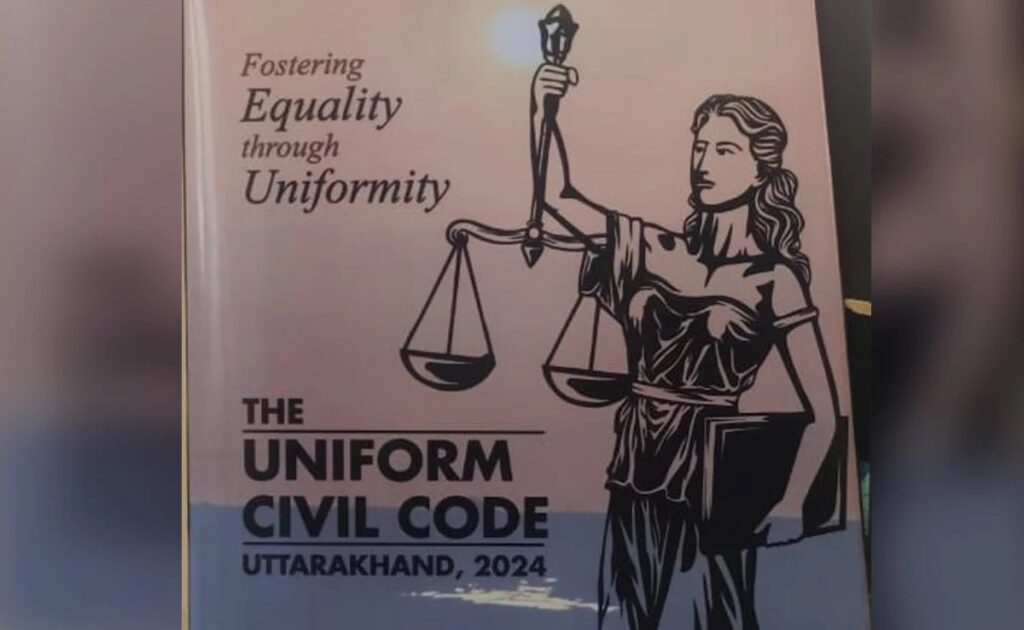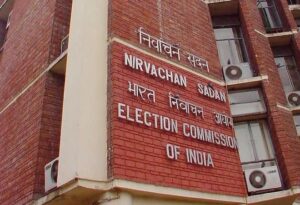Live-In Lover Law Could Open Door To Attacks On Freedoms

Under Section 378 of the Uttarakhand Uniform Civil Code, those who are in a live-in relationship are required to register it with the authorities. The Code has received the president’s assent and the state government says it will implement it as soon as possible. Two questions arise: one about the content of the law and one about how it will be enforced
India’s new code throws into doubt whether its citizens are truly protected from the arbitrary exercise of power by public officials.
Imagine a knock on the door at midnight, not because you are charged with sedition or tax evasion but because you are in a live-in relationship and haven’t registered it.
This could happen to you in the Indian state of Uttarakhand. Under Section 378 of the Uttarakhand Uniform Civil Code, those who are in a live-in relationship are required to register it with the authorities.
The Code has received the president’s assent and the state government says it will implement it as soon as possible.
Two questions arise: one about the content of the law and one about how it will be enforced.
One of the substantive law questions is that of privacy and the requirement to register a live-in. This is especially relevant after the Puttaswamy opinion of the Supreme Court of India, which held privacy was a constituent of the fundamental right to life and liberty.
Even if it is held that the state has the right to demand this information from citizens, the Code falters when it comes to basic procedural requirements.
The Code seems to ignore a foundational precept of administrative law — the rule of law. Rule of law is the opposite of the rule of the prince, meaning citizens should be governed by properly formulated laws rather than the whims of officials.
In its most basic form, it stipulates that a person can only be held liable for actions which are a distinct breach of law and that public officials will always be guided by powers granted to them by law.
It is the foundation of the idea that citizens in modern democracies must be protected from the arbitrary exercise of power by public officials. In his celebrated dissent in the Habeas Corpus case, Justice Khanna warns that a citizen’s liberty cannot be the handmaiden of the administrator’s benevolence.

Legal philosopher Joseph Raz, a proponent of legal positivism — which does not see a necessary link between law and morality — argues that a citizen must be able to plan their lives and to do so they must know the sphere of freedom.
For that, it is imperative to understand the coercive limits of state action in a particular circumstance. Raz’s idea of rule of law does not concern itself with questions of fairness and justice. Part 3 of the Code seems to fall short of even this threshold.
A live-in relationship is defined in section 3(4)(b) of the Code as one where a man and a woman cohabit in a shared household through a relationship “in the nature of a marriage”. The reason marriage is used as a marker is very simple. To be married, one must take an objective step — the wedding. This step, however it may look in its ritualistic form across cultures, has the same meaning for everyone and is understood as such.
While the kind of marriage one is in is a personal question, the fact that one is in a marriage is an objective fact if one is wedded. Consequently, if everyone is aware that bigamy is a crime, they know what not to do to be held guilty, meaning not to be married to two people at the same time.
In a sense, the social and legal understandings of marriage converge, giving rise to an efficient law in its capacity to guide behaviour. Unfortunately, there is no such socially understood threshold for a live-in relationship.
Live-in relationships are mostly self-defined. Especially when a relationship starts out, there is very little clarity on what it means for the participants. The ‘talk’ about where the relationship is headed constitutes an important milestone for many. This is where the relationship often ends as people may not be ready for the commitment of a live-in.
What this commitment means looks very different for various couples. It is by its nature messy and not capable of being tied down to objective standards. It seems like an egregious violation of the rule of law to demand that one provides the state with knowledge that one has no way to objectively assess even for one’s own relationship.
When the terms used to define a crime are vague and do not converge with any kind of accepted social understanding of the behaviour concerned, it increases the risk of arbitrary decision-making by the concerned authority.
Whimsical and capricious behaviour by public officials is not the sign of a democratic polity, but an absolutist one. The rule of law becomes the rule of the petty bureaucrat.
It does not stop there. Section 386 empowers the Registrar to act suo moto — without the prompting of another party — or on a complaint to insist on compliance with the provisions. Not only is there no objective standard for a person to peg their conduct to and avoid criminal liability; everyone else’s subjective viewpoint potentially becomes the line.
The idea of love and cohabitation has not been a purely personal question in India and is wound up with questions of identity and community mores. Constitutional law scholar Gautam Bhatia says the Indian Constitution was meant to protect the citizen from the state and the community. In the process, it was meant to undo the legacies of injustice which, in Indian history, have often constituted the state-subject and the individual-community relationships.
Provisions like Part 3 of the Code depart from this emancipatory vision of the constitution. The committee formed for framing the Code consists of retired judges, Indian Administrative Service officers, academics and social activists. They are experienced enough to understand the administrative implications of the provision.
What it seems to instead do is discourage live-in relationships by making it everyone’s business to regulate them.
(Originally published under Creative Commons by 360info™. Read the original article here)





